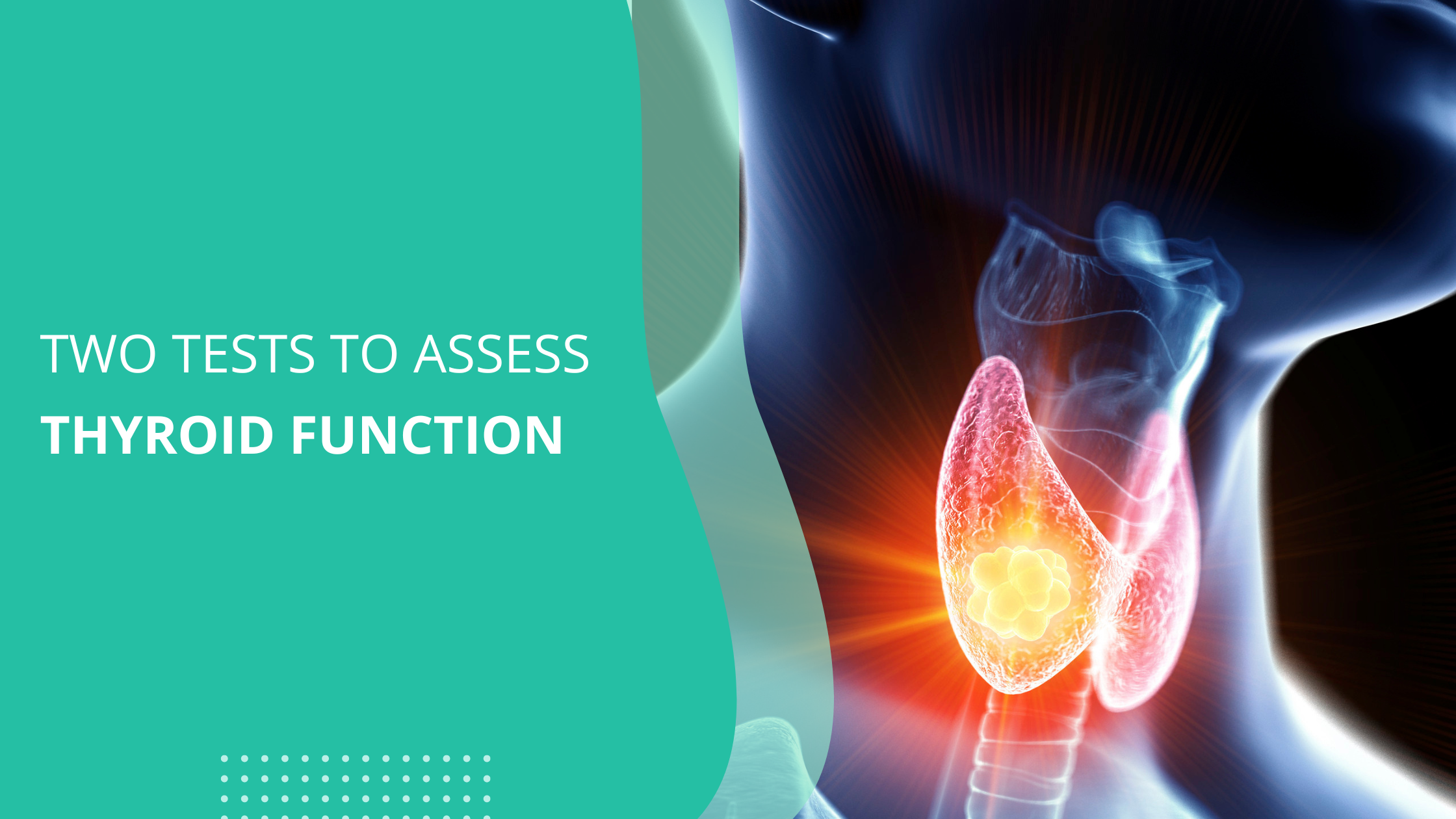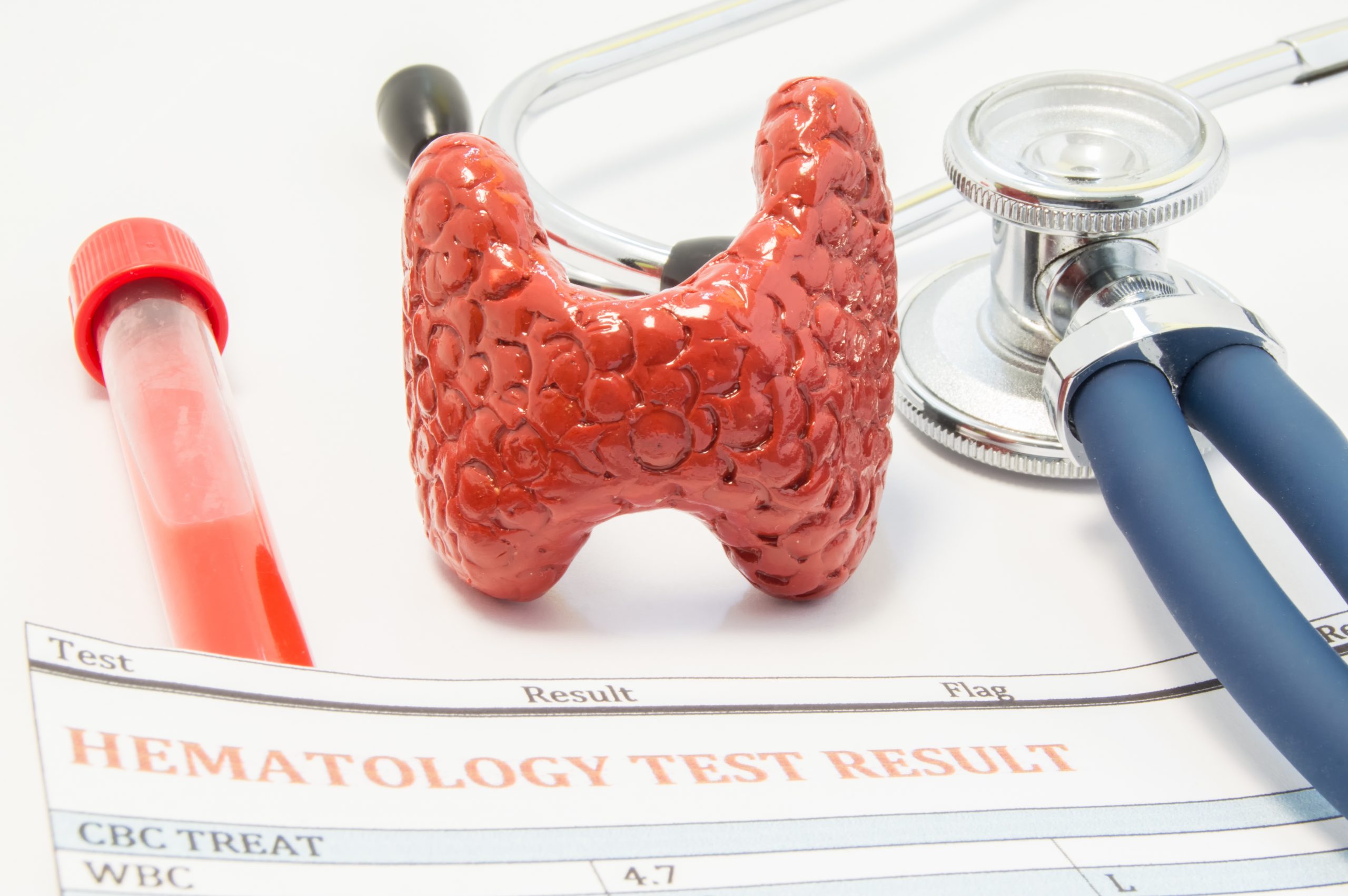
Nearly 5 out of every 100 Americans ages 12 years and older have hypothyroidism, and about 1 out of every 100 have hyperthyroidism. Every year about 12,000 men and 33,000 women are diagnosed with thyroid cancer, and about 900 men and 1,000 women die from the disease. Thyroid diseases can have major, lasting effects on health if left untreated. Thyroid diseases are easily detected and effectively treated with the help of thyroid function tests. The following two tests are used to assess thyroid function. If these lab results come back abnormal your care provider will order more tests, some lab, ultrasound, biopsy, and others.
The most frequently used laboratory tests to assess baseline thyroid function in the U.S. are thyroid stimulating hormone (TSH) and free thyroxine.
TSH (Thyroid stimulating hormone)
TSH is the hormone produced by the pituitary gland that stimulates the thyroid gland to produce more thyroid hormone.
A normal TSH result, which is a blood test, falls between 0.4 and 4.0 milliunits per liter (mU/L), according to the American Thyroid Association. Ranges between laboratories will vary with the upper limit generally being between 4 to 5.
Higher levels of TSH can be indicative of:
- Hypothyroid (low thyroid)- The most common form of hypothyroidism is Hashimoto’s thyroiditis, an autoimmune condition. Other hypothyroid conditions can be brought on by medications, thyroid cancer, and iodine deficiency to name a few.
- Stress, such as exposure to cold, emotional stress, not sleeping well, hospitalization and any other types of stress. These all can raise cortisol levels, which in turn can cause a temporary high TSH level.
Lower Levels of TSH can be indicative of:
- This is also known as an overactive thyroid. If a person’s thyroid gland is secreting levels of hormones that are too high, the pituitary gland produces less TSH.
- A variety of conditions lead to hyperthyroidism, including Graves’ disease and thyroid nodules.
- Pituitary gland tumor can stimulate the pituitary gland to release too much thyroid stimulating hormone
Thyroxine (T4)
Thyroxine, also known as T4, is the major type of hormone your thyroid releases. Too much or too little T4 can indicate thyroid disease.
Thyroxine (T4) is found in two forms:
- Bound T4: This form attaches to proteins, which prevents it from entering your body’s tissues.
- Free T4: This form “freely” enters your body’s tissues where it’s needed. The normal range for free T 4 in adults is 0.8 to 1.8 nanograms per deciliter (ng/dL)
There are a few different tests that measure T4 levels. A blood test that measures both free and bound T4 is called a total T4 test. Another test measures just free T4. Healthcare providers most often use a free T4 test to assess thyroid function because it’s more accurate than a total T4 test.
In conclusion, information from the TSH and free T4 tests help your cre provider assess if your thyroid gland is functioning properly. The thyroid gland is a complex gland, and there are many factors your care provider takes into consideration before making a diagnosis.
Next posts will delve into specific thyroid diseases and associated tests, starting with the most common form of hypothyroid- Hashimotos thyroiditis.

- Brooke Lounsbury
Medical Content Writer
Lifesaving Medications
Recent Posts
Keeping you informed and safe.
FAQ: Our most commonly asked questions about Jase
If you’re considering Jase, chances are you’ve paused and thought, “This makes sense, but I still have a few questions.”You’re not alone. Here are the most common ones we hear, answered plainly. Is this really doctor-prescribed? Yes. Every Jase order is reviewed by a...
Medical Readiness: What Really Kills First
When Disaster Strikes, It’s Not Hunger or Thirst That Takes the First Lives In every disaster zone, from hurricanes in the Caribbean to war zones in Ukraine, the pattern is the same. People worry about food and water, but it’s infection that kills first. A small wound...
Exploring Dr. William Makis’ Hybrid Orthomolecular Cancer Protocol: Focus on Ivermectin and Mebendazole/Fenbendazole
Exploring Dr. William Makis’ Hybrid Orthomolecular Cancer Protocol: Focus on Ivermectin and Mebendazole/Fenbendazole *Disclaimer: This article is for educational purposes and does not constitute medical advice. Always seek professional guidance.* In the evolving...



